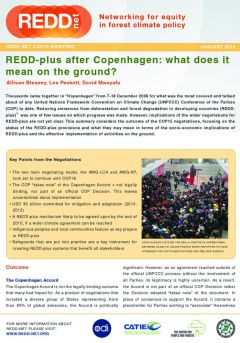Adaptation to climate change and desertification: Perspectives from national policy and autonomous practice in Malawi
This paper explores the ways in which the interlinked challenges of climate change and desertification are managed in Malawi. The authors examine the synergy and conflict between local autonomous adaptation strategies and national adaptation policies, which are in accordance with international commitments to the United Nations Convention to Combat Desertification (UNCCD), and the United Nations Framework Convention on Climate Change (UNFCCC).







